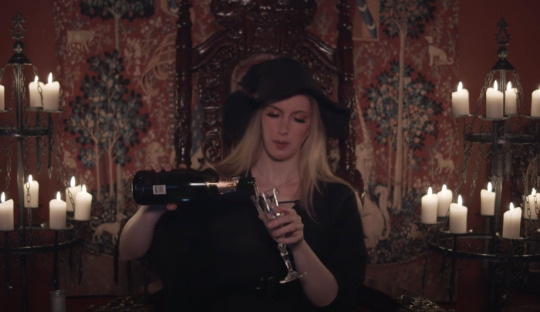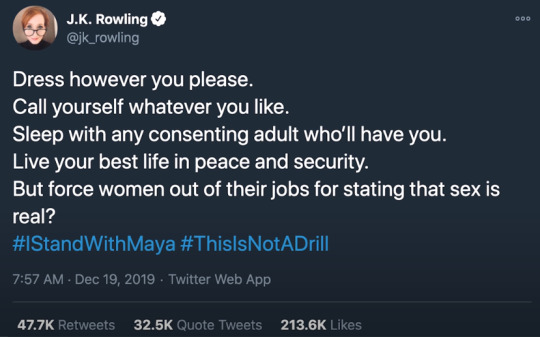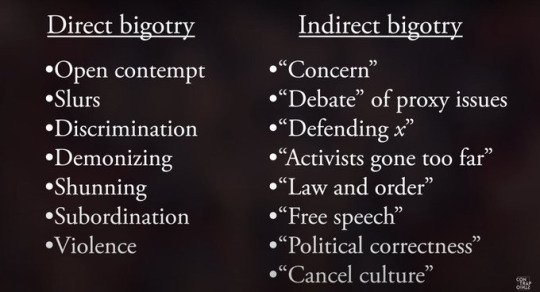#and also the transphobia isn't in erasing trans characters i don't think they're trans
Note
Do you think Character and Frisk are nonbinary or is it supposed to be up to the players ?
no i don't think they're nonbinary
seeing as every single human we've met has been referred to as neutral the most logical conclusion is that UTDR humans straight up don't have genders at all.
#this is a joke but also not really#i wouldn't say they're nonbinary but they're definitely neutral. and their being neutral is in function to the stories utdr wants to tell#and also the transphobia isn't in erasing trans characters i don't think they're trans#the transphobia comes from being confronted with a neutral character & having the compulsive need to gender them in a binary way u recogniz#instead of accepting the neutrality as... something a character can be. something that is USEFUL to a character storywise#it really speaks to someone being completely out of touch with trans people. nonbinary people especially#if the only way they interact with gender neutrality is as something dismissable and you can spin how you want#answered asks#undertale#frisk#chara
148 notes
·
View notes
Text
Natalie Wynn's "J.K. Rowling" and Disruptive use of Women's Rhetorical Tropes: A Defiant Reply to Transmisogyny

ContraPoints, surrounded by an opulent, candle-lit set and adorned in witch's garb, leisurely pours champagne into her glass — she's ready to breach the internet's hottest topic of January, 2021: her childhood idol being outed as a transphobe (link here). The video itself being over an hour and a half long, I would be hard-pressed to claim that I could ever hope to cover its entirety, comprehensively, in a single post. So to save-face, I'll be dedicating this space only to breaking down her most frequently used rhetorical tropes, one by one.
Irreverence
"Joanne, I wanna talk to you, Joanne! [Fans herself with a rainbow paper fan with the word "BIOLOGICAL" written across it] What is it about Joannes? I can't catch a break from these people" (00:23-00:29, emphasis added).
Wynn's introductory lines immediately open a dialogue with J.K. Rowling — however, this invitation of discourse is defiantly "irreverent" (reminiscent of Nomy Lamm's punk-feminist style in "It’s a Big Fat Revolution” (1995)). Contrapoints, herself a transgender woman, is aware that her very existence is considered in opposition to the TERF-ideology that Rowling subscribes to. Thus, she's rather playful — even openly disrespectful — with her diction: calling the British author by her first name in a mocking-tone and flaunting her own trans identity to the camera (in a way that would likely offend the fragile sensibilities of a transphobe). Her personal tone (with ample use of the pronoun "I") servers a duplicitous purpose: a simultaneous message of "sit down and listen" and a fair degree of "I don't care if you can't accept me."
"So, now that 2020 is finally over, I think we can let the record conclusively show that it was a year whomst is bad. And on top of everything else going on, truly the last thing we needed was the author of Harry Potter coming forward to announce there's two things she can't stand: bigotry, and the transgenders. (00:31 - 00:50, emphasis added).
Finally broaching the subject at hand directly, Wynn employs kairos alongside her irreverence. Kairos, or the rhetorical use of an "opportune moment," holds incredible weight in the first month after 2020: the year in which the whole world fell into a stasis. Characterizing Rowling's transphobia as a collective "the last thing we needed," is also rather dismissive — she unites herself with her audience with the pronoun "we" and invites us all to groan at the exasperating nature of Rowling's bigotry.

Claiming the Right to Speak / Personal Experience
"This is a painful topic for me all around because, as a transgender woman, I am honestly really hurt by a lot of the things Joanne has said in the last year. But I also know what it's like to be the target of a Twitter mob" (01:36-01:47).
As she begins to touch on the topic, Natalie Wynn claims the right to speak on the issue of Rowling's transphobia — a type of bigotry that directly effects her. However, Wynn also situates herself partially with Rowling in her acknowledgement that receiving Twitter backlash is a terrifying experience (an experience, she argues, that the human brain is not prepared to handle the scale of, 01:49-02:39). In treating her subject with such dignity — and adding her own deeply personal account— ContraPoints creates a credible ethos in the beginning of her video essay. The audience is inclined to listen to someone who has been directly effected by the subject of Rowling's controversy (transphobia) and someone who is, rather compassionately, willing to empathize with those who would wish her harm. Although the generally sassy, glamorous, and irreverent tone of the video still appears soon after (see: the above image), her opening up for this somber moment garners a fair degree pathos in the viewer — we, as human beings, are inclined to sympathize with people who are open about being hurt.

Metis (Embodied Rhetoric)
[The following ContraPoints quote is addressing the above J.K. Rowling tweet, content warning for transmisogyny]
"Transphobes love to play this game where they pretend that trans people just don't understand basic biology, that's our problem! As if I didn't start taking female hormones because I'm acutely aware that my body is not the same as a cis woman's body, that sex is real.
"[Fictional TERF character] You will never be a woman, Nathan. Every cell in your body is male and has a Y chromosome."
Really? That's crazy. How you'd you learn so much about science? You know I don't really feel the need to have a second X chromosome, I get by with only one, I make it work. I actually like the Y chromosome, I think it's a little more dainty, you know, it's little softer, a little more petite. The X chromosome has a lot of extra appendages, and don't you think? I don't need anymore of those, thanks. No trans person thinks it's possible to change chromosomal sex and to pretend otherwise is to argue in bad faith" (08:47-09:34).
If you can excuse my gargantuan quote, I hope you'll agree that the dialogue ContraPoints builds here was just too good to cut short. Within this excerpt, we see Wynn's use of irreverance and personal experience blended seamlessly together. For this YouTuber, the personal is perpetually political — especially when her own identity is constantly taken as an ideological stance. She uses her own expertise in trans issues to pick apart just how disingenuous Rowling's assertions are — even accusing her of "argue[ing] in bad faith" with her reductive claims (later, taking specific issue with how Rowling treats trans-ness as a costume). But, here, she also directly invokes another rhetorical trope: that of metis, or embodied rhetoric. Natalie Wynn specifically references her transgender body as a sort of counterpoint to the condescending "sex is real" claims by TERFs. She cites her intrinsic desire to pursue hormonal therapy as evidence that she — and other trans people like her — are all "acutely aware" that there are chromosomal differences between themselves and cis women.
With this salient statement, she then follows with some humor: which, again, utilizes her trans body in her rhetoric. Her characterization of the Y chromosome as "more petite" and playful declaration of not needing "extra appendages" lightens up the often dark tone that arguing for trans rights and liberation can take. The clever points she makes are by no means weakened by her humor — if anything, the audience is more willing to listen to someone who can "joke about themselves" (so to speak) while still arguing an incredibly important message.

Naming and Defining Issues
"When I see Joanne tweeting about how trans people think sex isn't real and they're erasing same-sex attraction and they're silencing women, alarm bells are ringing because I recognize these as familiar transphobic talking points, specifically TERF talking points. "TERF" means trans exclusionary radical feminism. God are we still talking about this? I promise this is the last time. So TERFism is a hate movement that disguises transphobia as feminism. ... The fundamental problem with TERFs is not that they're mean. It's that they're politically reactionary, they want to reverse the progress of trans liberation." (14:05-16:02)
In her definition of TERF rhetoric, Natalie Wynn outlines some dog-whistles that are obvious to her, as a trans woman. She calmly explains to the viewer that, oftentimes in the present-day, rhetorics of exclusion are thoroughly disguised; TERFs, specifically, hide their rampant transphobia as a form of feminism. However, she further clarifies that the specific "danger" that TERFs pose is not from their cruelty — it's from their fervent dedication to strip away trans rights through political means. By specifying this danger, Natalie Wynn shifts the conversation away from empty discussion of offensiveness/terminology, to issues which directly affect the lives of trans people every day.
[This portion addresses the picture above]
Also an act of naming and defining, ContraPoints makes a distinction between "Direct" and "Indirect Bigotry." She argues that many people envision bigotry as a festering, public, frothing-at-the-mouth hatred — a phenomenon she dubs "the Westboro Baptist Church theory of bigotry" (20:06). In bringing attention to the human tendency to think of people as exclusively practicing "direct bigotry" — envisioning them as a sort of delusional "other" — she then forces the audience to contemplate the relative omni-presence of the more covert (and possibly alluring) "indirect bigotry." This definition, crucially, requires introspection. By allowing ourselves to think of bigots not exclusively as "Westboros," we're made to adopt a much more nuanced view of subjects (most) generally prefer to keep black-and-white. Natalie Wynn uses her J.K. Rowling case study to complicate this 2D view of "The Bigot," inviting others to more carefully examine how politically reactionary views develop.
Phew, this was probably the longest post I've ever typed up on tumblr! Hopefully, I succeeded in demystifying (or at least adding clarity to) some of the specific tropes ContraPoints uses (that are common to women's rhetorics as a whole). Thanks for reading if you stuck around this long, and my ask box is always open!
22 notes
·
View notes